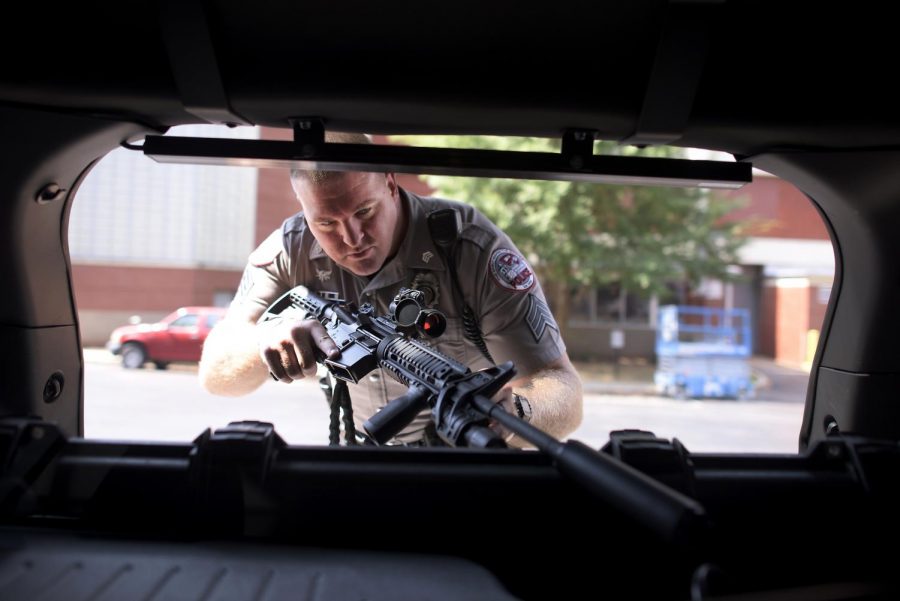WKU Police Department weighs in on campus weapon policy
September 3, 2015
Controversies surrounding the Second Amendment and access to guns remain a hot topic across the nation.
College campuses are starting to weigh in on the gun rights controversy due to media spotlight on campus shootings and sexual assault.
In February, The New York Times reported lawmakers in 10 states, including Tennessee, were “pushing for bills that would permit the carrying of firearms on campus.”
However, opponents of these laws argue putting deadly weapons in an environment where alcohol is so readily available would likely lead to more accidents.
WKU’s weapons policy complies with the latter and is considered standard among most college campuses.
As stated in university policy located in the Student Code of Conduct, “possession, concealed or otherwise, use or storage of firearms, explosives, dangerous chemicals or other dangerous weapons or the brandishing of any weapon or any other object in a menacing or threatening manner is strictly prohibited on any property owned, leased, operated, or controlled by Western Kentucky University, including University housing.”
If a student is found in possession of a weapon on campus, campus police cannot press criminal charges if the student is in compliance with Kentucky state law: for example, he or she is carrying the proper permit and registration. However, the university can remove the student from housing, take away all scholarships and expel the student from the university for not abiding by the university’s policy.
“Any student found with a firearm on campus that is outside of Kentucky state law, the weapon would be removed and the student would be subject to a possible removal from WKU,” said Vice President of Student Affairs Howard Bailey.
There are some exceptions. These include the use of weapons by campus police and the use of weapons for ROTC curriculum. Students also have a right to request an exception to the policy from the Chief of Police on campus for a six month period. The exceptions are dependent on unique circumstances.
If there are no criminal charges, the university will handle the punishment.
“As an officer, we (sic) will do what we can to make sure the scene is safe, whether it be unloading the weapon or reporting it to Housing and Residence Life,” said WKU Police Department Capt. Dominic Ossello. “However, we do not take that property. It is not a criminal offense. The university will handle it.”
Although campus police carry guns, they try to use them only in extreme situations.
“Officers have many tools that they use, whether it be the presence of an officer on a scene, verbal communication, a hands on approach or the use of a secondary weapon such as the baton, taser and the pepper spray, and officers have the ability to work within what is going on in order to control the situation with the least amount of harm,” said Ossello.
Despite campus police carrying guns on their person at all times, over the past two years there has been no record of an officer pulling his gun.
While guns, knives and stun guns are not forms of self-defense allowed to students on campus, campus police offer multiple resources to help keep WKU students safe.
“We offer Rape Aggression Defense (RAD) classes to all female students as well as the escort,” says Ossello. “Getting away, screaming for help and hand-to-hand defense such as pushes, hits and some strikes are all taught during these classes. The main goal in the end is to get the victim away from the person that is causing them harm.”
According to the Michael Minger Report located on the campus police’s website, there were 10 reported cases of weapon possession in 2013. These include everything from the possession and transporting of any type of weapon to the use of any weapon—not necessarily the use of a gun.
Although weapons haven’t been a major issue on campus, campus police remain cautious and depend on reports from students and faculty for alerts to a gun on campus.
“It’s not a consistent thing, but it’s always on your mind with the way the world is turning,” Ossello said.


























